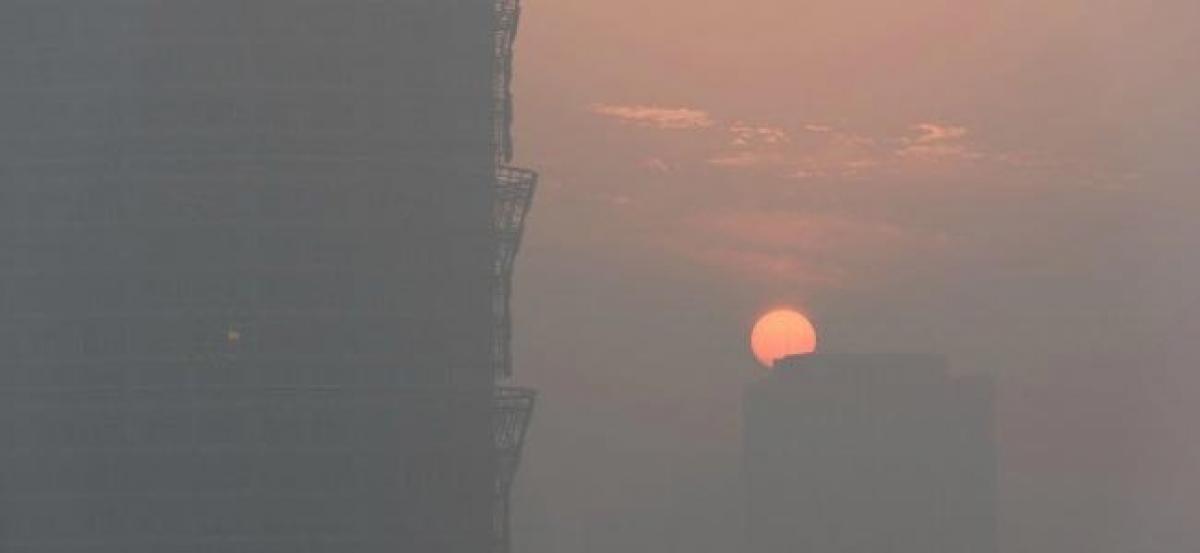Smog returns, but Beijing says skies are getting cleaner

The Chinese capital was on the second-highest orange smog alert in the depth of winter on Tuesday but city officials said the air quality was improving overall, citing data for 2016.
Beijing: The Chinese capital was on the second-highest orange smog alert in the depth of winter on Tuesday but city officials said the air quality was improving overall, citing data for 2016.
Hundreds of flights were cancelled and highways closed across northern China over the new year holiday as average concentrations of small breathable particles known as PM2.5 soared above 500 micrograms per cubic metre in Beijing and surrounding regions. Pollution alerts are common in northern China, especially during bitterly cold winters when energy demand, much of it met by coal, soars.
But the Beijing Municipal Environmental Protection Bureau told state media that PM2.5 concentrations dropped 9.9% on the year to an average of 73 micrograms per cubic metre in the Chinese capital in 2016. The total number of "blue sky days" reached 198 in 2016, up 12 from the previous year. However, the average PM2.5 measure still exceeded national air quality standards by 109 percent, the bureau said.
Despite a brief respite on Monday, smog returned to the Chinese capital on Tuesday, with PM2.5 readings again at "hazardous" levels. Smog is expected to last in the region until a cold front arrives on January 8, state news agency Xinhua said. China's weather bureau also issued its first ever fog red alert on Tuesday, saying that visibility could fall below 50 metres across northern China.
Three major ports in northern China suspended the loading of ships on Tuesday as a result of poor visibility, maritime safety agencies said. China is in the third year of a "war on pollution" aimed at reversing the damage done to its skies, soil and water after decades of untrammelled economic growth.
It has created emergency response systems that restrict traffic and shut down factories and construction sites during periods of heavy smog, and it has also vowed to punish local officials and enterprises that break rules. During a bout of smog in December, inspectors identified 21 enterprises that had violated regulations.
Over the new year, 10 more inspection teams were dispatched to cities across the region and more than 500 enterprises and construction sites as well as 10,000 drivers were punished for breaching regulations, Xinhua said. Hebei, China's smoggiest province, said on Tuesday that six local enterprises had violated emergency restrictions during the latest alerts, with one refusing to allow inspectors to enter its premises.

